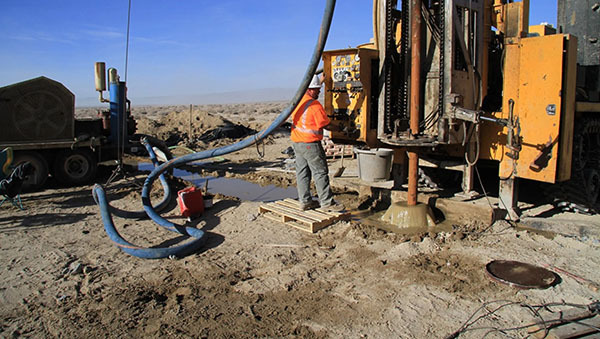Maihapa Ndjavera
Exploration in 2022 continued with its upward trajectory, breaching N$1.3 billion in real terms.
This expenditure continued to be driven by progressive exploration activities at Andrada Mining’s Uis tin mine, the fast-tracking of the Osino Resources Twin Hills project, the advancement of uranium projects and the discovery rush for critical minerals in Namibia.
This was shared by the Chamber of Mines 2022 report, shared by Hilifa Mbako as the outgoing president.
Mbako, during the chamber’s annual general meeting on Wednesday, added that after many interruptions and delays during Covid-19, the chamber was able to provide their input in the Minerals Bill.
The Chamber of Mines is a member-based organisation that is responsible for the stewardship of mining, exploration and associated activities for the benefit of all stakeholders.
“The chamber compiled a comprehensive submission on the bill and submitted it to the line ministry. The most contentious aspects of the draft bill are proposals to increase the upper royalty rate limit from 5% to 10% for base and precious metals, nuclear fuel minerals, dimension stone and industrial minerals, the introduction of a windfall tax, as well as the inclusion of mining charter provisions as part of the legislation,” he said.
Water shortage
Furthermore, Mbako added the chamber made significant progress in demonstrating the urgency for the government to ensure the security of water supply for a growing uranium sector in the Erongo region.
“We commissioned a study to demonstrate the economic impacts of an expanded uranium sector. The study revealed major economic benefits are to come from the uranium sector,” he said.
However, Mbako noted, this will not be fruitful if the current water challenges persist. The study was presented to the line minister in 2022, who expressed he would address the issue with his ministerial counterparts at the cabinet level to see how additional water infrastructure can be advanced.
Local procurement
The mining sector continued to uphold its commitment to supporting local suppliers and spend approximately N$16.823 billion on goods and services from Namibian registered businesses. As a proportion of total procurement spent by the sector, 74% was spent on local businesses.
Contribution to government coffers
Mbako added contribution to government total revenue paid by chamber members has increased by 29.6% in 2022 as a result of higher sales revenues and the high profits realised by individual operations, particularly from diamond mining in comparison to 2022.
“Corporate taxes paid by the industry increased from N$1.553 billion in 2021 to N$1.9 billion in 2022. Chamber members collectively paid N$2.154 billion in royalties and N$249.4 in export levels, which increased by 33.7% and 7.6% from 2021 to 2022, respectively,” explained Mbako.
Employment creation
Mbako stated total direct employment increased by 6.9% in 2022. The sector collectively employed 16 147 people. The increase was a result of the new employment positions created on Debmarine Namibia’s new mining vessel and increased exploration activities, which contributed to a higher number of contractors employed. Direct employment consisted of 8391 permanent employees, 742 temporary employees and 7014 contractors.
Sector profitability
The sector’s financial performance in terms of profitability declined by 142% in nominal terms. It appears the cost pressures from mounting local and imported inflation far outweighed revenue gains from a weaker exchange rate.
Oil discoveries
On Wednesday, during the Namibia International Energy Conference, mines minister Tom Alweendo emphasised the need to ensure the new oil discoveries benefit ordinary Namibians and not merely those that are connected.
“How do we ensure that all Namibians benefit? And by ‘Namibians’, I am not referring to the ‘connected’ middlemen who approach investors with their family album instead of their CV. I am instead referring to the deserving sons and daughters who have little or no access,” said the minister.
He further noted it shall be made a requirement for international oil companies to ensure all services that can be immediately provided by local entrepreneurs are sourced locally.
Alweendo emphasised that in cases where local entrepreneurs are not able to provide certain services, the government will need to have a clear programme as to how to capacitate local entrepreneurs through joint ventures with experienced international service providers.
“I have no doubt that our recent oil discoveries can and must help unlock industrial activities through the transfer of technology, more value addition in domestic supply sectors, the generation of indirect jobs along the supply chain and the creation of business opportunities for entrepreneurs from local procurement,” said Alweendo.


